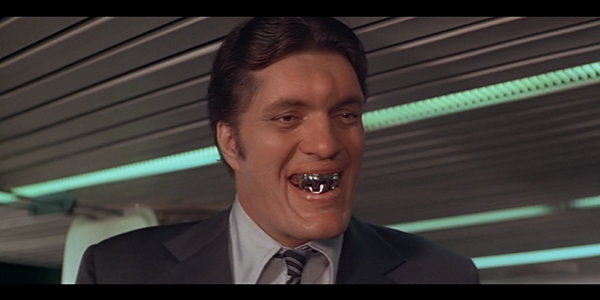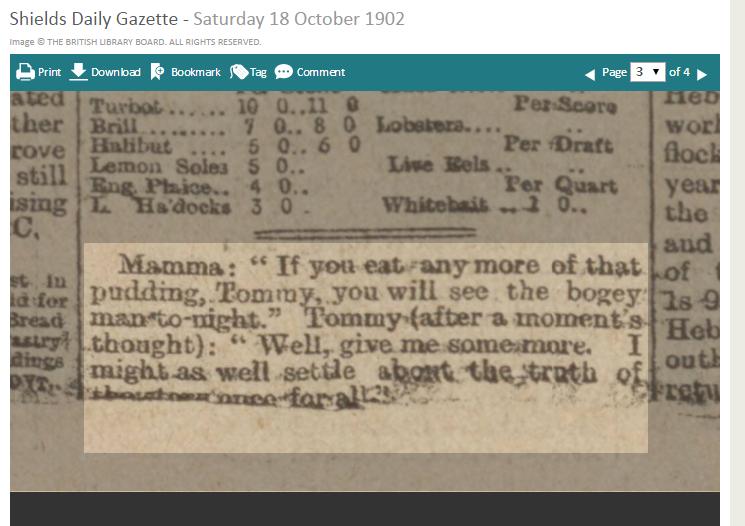Tom Dockin, Iron Toothed Child Killer February 25, 2016
Author: Beach Combing | in : Modern , trackback
Here is another in our series of the minor monsters of British mythology, the terrible child-eating ‘Tom Dockin’. The name ‘Tom Dockin’ was associated with Sheffield (in what was then the West Riding of Yorkshire) and seems to date back at least to the late eighteenth century on the evidence of this intelligent-sounding correspondent, John Wilson, writing on the local Sheffield dialect in 1888.
‘Tom Dockin’ has quite another meaning. He was a ‘boggard’ or ‘barghast.’ I asked an old woman, nearly 90 years of age, the other day, if she ever heard the word Tom Dockin. She at once said children were told ‘If they were not good Tom Dockin would fetch them.’ He was a frightful ‘bogey’ to children. He was sometimes described as having iron teeth, with which he devoured bad children.
Iron teeth are, of course, a common feature of monsters in the English Midlands and on the Welsh borders.
The writer of a Sheffield dialect glossary wants to go further: ‘Compare [Dockin with] the Norse dockalfar, or dark elves, who dwell down in the earth. Tom Dockin is well known as a goblin about Sheffield.’ 60 [1888]
Always good to have elves on hand! Here is another attempt to get to the bottom of Tom.
In South Yorkshire, when children are naughty the nurses say that Tom Dockin will fetch them, and I have in this county heard of a being called Tom of the Wood. Dockin is the same as Dickin, an old word for the Devil. Amongst field-names I have noticed Tom Hill, Tom Lane, Tom Field, Tom Wood, Tom Cross, Tom’s Cross.’
So is Tom the devil, perhaps (probably?)? Does ‘Dickens!’ come or share the same root? Maybe. A more productive way to go after Tom would probably be a strange Sheffield phrase ‘Tom Dockin scales’:
‘Tom Dockin scales [were] scales cut out of thin rolled iron instead of being forged’.
So there: to tommy also meant to rivet or fasten together in Sheffield. The city was the old heart of steel making in Britain. Perhaps the iron teeth had a double meaning, then. Can any one fill in the gaps with Tom Dockin? Drbeachcombing AT yahoo DOT com Beach would also be grateful for any other minor deities from Britain and Ireland: the kind that are bitter and have retreated into their caves because they never get included in the fairy field guides and encyclopedias.
Also the following comes from a Sheffield newspaper. Was the name ‘Tommy’ accidental?
25 Feb 2016: Filip writes Tom Dockin got included in a fairy encyclopedia, e.g. “Encyclopedia of Fairies in World Folklore and Mythology” by Theresa Bane.
A bit of fame then…
29 Feb 2016: Mike Dash writes ‘You also need to read Sandy Hobbs and David Cornwell, “Hunting the Monster with Iron Teeth,” which is about a Spring-heeled Jack type scare in a Glasgow cemetery in the 1950s. This appears in Gillian Bennett/Paul Smith’s Monsters With Iron Teeth (which is v3 in the series Perspectives on Contemporary Legend, 1988).



